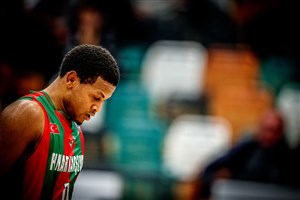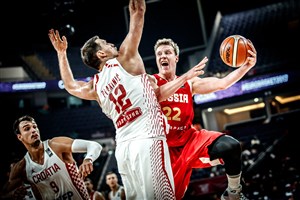
Canadian wheelchair basketball stars doing double duty in PyeongChang
CHARLOTTE (Steve Goldberg's Wheel World) - Four years ago, I wrote about 2008 Beijing wheelchair basketball gold medalist Alana Nichols going for more bling in the colder climate of at the 2014 Winter Paralympic Games in Sochi, Russia. She was already the first American woman to win both summer and winter gold, having sandwiched the Vancouver 2010 games, where she won two more gold medals in alpine skiing, in before returning to basketball and the USA women's team for London 2012.
After competing in kayak at Rio 2016, Nichols was working her way towards the upcoming PyeongChang Paralympics until a crash – I want to call it spectacular though I haven't seen it, bbecause Nichols doesn't do unspectacular - during a downhill training run at the World Cup event in Kimberley, Canada ended her chances of a third straight winter games.
But that doesn't mean wheelchair basketball won't be represented in the Korean mountains next month. Two current and one former Canadian players have been nominated to compete in PyeongChang.
Cindy Ouellet will be grinding it out Nordic-style as a cross-country skier while Liam Hickey is sticking with the team aspect, trading his wheels for blades as a member of the Canadian sled hockey squad where he will join veteran Brad Bowden, who won Paralympic basketball gold with Canada in Athens in 2004. (A former national team but not Paralympic player, Billy Bridges. is also on the hockey team.)
In the early days of the Paralympic Games, it wasn't uncommon for athletes to compete in multiple sports during a single games. David Kiley, one of the all-time greats in wheelchair basketball, won gold medals in basketball and track in the 1976 Toronto Paralympics.
Before the IOC started alternating the Summer and Winter Olympics, they were in the same year and that was the case for the two 1992 Paralympic Games when Kiley won two gold and two silver medals in alpine skiing in Albertville, France before heading to Barcelona with the basketball team.
But that was then and this is now.
It would take a unique athlete with a forgiving schedule and a very understanding coach for that to happen now, given the specialization and far more competitive realities of Paralympic level sport.
But winter sports are a different thing and with a lot of time between the summer games, the inherent desire of an athlete to test their own capabilities and limits can be overwhelming.
Cindy Ouellet, du basketball au ski paranordique : un texte de @ChristineRoger https://t.co/RTkpulatku#basketball #paralympiques pic.twitter.com/lLyd5G9MS4
— Radio-Canada Sports (@RC_Sports) January 3, 2018
Ouellet took up wheelchair basketball in 2005 and, at 16 years old, was on the Canadian Paralympic team in Beijing three years later, also playing in London and Rio. She won a bronze medal with the team in the 2010 IWBF World Championships and a gold when the event came to Toronto in 2014.
Her tenacity on the court is unquestionable and evidently that has translated to the snow as well. Though she was an alpine skier before cancer affected her leg at age 12, her commitment to basketball and education (in the extremely non-ski friendly climates of Alabama and Southern California) didn't allow for snow time. With only one month of hard-core training before her first World Cup race, she held her own against a full-time field.
Talking to Radio Canada in early January (before the team was selected), Ouellet said, "I got international points on the World Cup circuit, so I entered my time to compete in the next Paralympics. I was really proud of that. Here, it remains to be seen if Canada will have an extra place for me, for the Paralympic Games."
At the time of the radio interview, Ouellet was still playing basketball for the Canadian team, the Quebec team, and a first division club in the United States. She spoke about the differences.
"It's yourself against the mountain, yourself against your watch. If you do not push yourself, you're the only one responsible. At home, my workouts will be a little more cardio than muscular compared to basketball. It's really two different sports, but they complement each other."
She later elaborated to me that ski racing is, "Much different then basketball because it is individual. You against a clock and every little mistake you make is on you. Not like basketball where my team is always behind me."
What a week for @liamhickey1998 First, he learns he's off to #PyeongChang2018 to play sledge hockey for @TeamCanada then he's named @CityofStJohns Male Athlete of the Year! Liam is live next @sjmorningshow #cbcnl pic.twitter.com/5nr7ufJgyt
— Krissy Holmes (@KrissyHolmes) February 13, 2018
It will be the second Paralympics for Hickey, who won't be 20 until March 25, after his basketball debut in Rio two summers back.
"Rio was a crazy experience," Hickey told the National Post last September. "That being my first (Paralympics), it opened my eyes to what it was all about - the opening and closing ceremonies, the games and the crowd it draws. It made me more excited to play in the next Paralympics as soon as possible. To get the chance to do that, hopefully, with sledge hockey, I can’t wait."
— liamhickey (@liamhickey1998) February 12, 2018
Along with his Paralympic basketball gold from Athens, 34-year-old Bowden already has a sled hockey gold medal from the 2006 Torino games. Curious about the basketball-hockey crossover, Canadian basketball GOAT Pat Anderson interviewed Bowden, his friend and former teammate for his blog.
"One interesting dynamic that Brad described was the way in which he borrowed from wheelchair basketball and challenged himself and other hockey players to develop parallel skills. For example, some of his stick handling innovations - behind the back, under the sled in various ways - were a response to wheelchair basketball skills that he’d picked up or observed."
Congratulations to @liamhickey1998, member of our #TeamCanada wheelchair basketball team; and @Bow27 & @BillyBridges18, wheelchair basketball national team alumni, on making @HC_Sledge! Good luck at #PyeongChang2018! pic.twitter.com/LNnQL9kTTF
— WheelchairBballCAN (@WCBballCanada) February 12, 2018
Bowden was also interviewed in that National Post piece about the advice he gave Hickey about double duty. "I said, 'you're going to get burnt out, and when you do, you have to be honest with your coaches, because they need to know what you’re going through,'" said Bowden. "For one national team, it's hard enough, and I'm not saying it's horrible, but it is demanding. Both these national teams have high expectations of everyone."
Steve Goldberg
FIBA
FIBA's columnists write on a wide range of topics relating to basketball that are of interest to them. The opinions they express are their own and in no way reflect those of FIBA.
FIBA takes no responsibility and gives no guarantees, warranties or representations, implied or otherwise, for the content or accuracy of the content and opinion expressed in the above article.
To help make this column as inclusive as possible, please send any national or international event information, story suggestions, or comments to wheelworldmail@gmail.com.

















